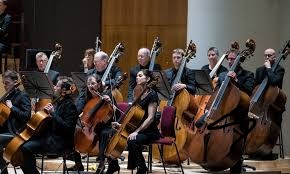When people hear the phrase, classical music, the first thing that happens to their mind is the picture of conductor.
These gifted people are responsible for influencing the orchestras to be what they are musically, song wise.
Who are some of the famous orchestra conductors, or what new contributions to the world of music can they boast of? Let’s dive in
The seemingly unimportant characters of conductors
A good number of people love listening to some classical music but are not quite familiar with the role of conductor in an orchestra.
All the choral conductors are so much more than people who just swing an arm with a baton in their hands;
they are creators who have to translate music on paper to people, control the musicians, and play for the band.
But the presence of great conductors is often important, even for the most talented orchestras in order to produce an emotional charge of a classics.
That is quite like being enchanted by the excellent musical arrangement but missing the role of the conductor.
It may also result in inadequate knowledge of the music’s richness and background, They fail to realize.
Discovering the Legends of Conducting
Now with no further ado, let’s look at some of the best known orchestra conductors and the ways that influenced the music industry.
These maestros have made indelible imprints on the scene of classical music.
1. Leonard Bernstein
A legend of the twentieth century, Leonard Bernstein was a conductor, composer, and a teacher.
He has also worked with New York Philharmonic most of the time, and he is a passionate conductor of Mahler and Beethoven.
Beside, Bernstein was also kept as the patron saint of musical amateurism through his ‘Young People’s Concerts’ ;
educating the younger generations about the beauty of classical music.
2. Herbert von Karajan
Powerful maestro of circus of classical music, Herbert von Karajan was specifically associated with the post as a principal conductor
of the Berlin Philharmonic. He set example of the quality, which his recordings of Wagner and Strauss bore testimony to.
Due to Karajan’s concentration on detail and individuality of sounds, he stays powerful in music circles, and it remains significant in the present.
3. Gustavo Dudamel
One of the young stars of the conducting scene today, Gustavo Dudamel is the music director of the LOS ANGELES PHILHARMONIC.
He is remembered for his youthful-cordiality and his progressive scheduling skills. Thanks to Dudamel and similar like-minded leaders,
music education, especially to children, through El Sistema in Venezuela, has received a shot in the arm and has predisposed many young talents around the globe.
4. Zubin Mehta
Zubin Mehta is a man with an incredible career which as a conductor he has conducted some of the biggest orchestras around the
world including the Los Angeles Philharmonic and the Israel Philharmonic orchestras.
The dynamic beat and intense emotional readings have seen him receive a standing ovation all over the world.
Another impact of Mehta’s wife passion in music and dedication to cultural diplomacy has been the addition of value to orchestras.

5. Marin Alsop
Marin Alsop is the first woman at the helm of a major American orchestra, and has blazed the trail for conductors of her generation.
She has devoted her time as music director of the Baltimore Symphony Orchestra to supporting new music and increasing diversity in the field.
The fact that Alsop communicates rather well and is willing to educate young conductors should make her an inspiring figure for any budding conductor.
6. Daniel Barenboim
Born as a conductor and pianist, Daniel Barenoim is the editor for conductors, with the Berlin Staatsoper and the West-Eastern
Divan Orchestra that aims to foster relationships between Israeli and Arab musicians. His performance on Beethoven as well as on
Wagner has been a great appreciation. It was also nice to note Barenboim’s passion for
using the art of orchestral music to transverse old deep divides of race and ethnic backgrounds.
Conclusion: Embrace the Conductors
That is why getting to know the accomplishments of those great orchestra conductors help in nurturing our love for classical music.
These individuals influence the performances we have seen, thus letting us share some kind of emotion that is in music.
